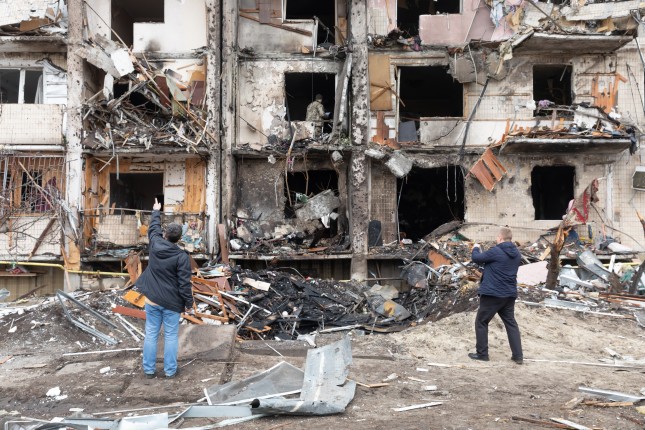-
The Environmental Dimensions of the Russian Invasion of Ukraine
March 4, 2022 By Wilson Center Staff
Today, the Environmental Peacebuilding Association published an open letter, signed by 902 individuals and 156 organizations from more than 75 countries, to express solidarity with the people of Ukraine in the face of Russia’s invasion and shine a light on some of the environmental risks posed by the invasion that have both short and long-term implications. Below is an excerpt of that letter.
Russia’s invasion of Ukraine has immediate consequences for human rights and human lives. These impacts will be magnified by the war’s potentially catastrophic environmental impacts, which themselves pose both immediate and long-term threats to human rights, health, welfare, and livelihoods.
The intentional takeover and occupation of the Chornobyl nuclear disaster site creates profound and potentially long-term risks to the people of Ukraine and to nations throughout Europe. Already, Russian military operations at the Chornobyl site have mobilized radioactive dust and increased detectable radiation, raising serious concerns that Russian troops and equipment may spread radioactive material into new areas. More troublingly, the Russian seizure of a nuclear containment facility that has no military objective should be a matter of profound concern to all nations.
Nor is Chornobyl the only nuclear site at risk. The International Atomic Energy Agency reported missile strikes near two separate radioactive waste disposal facilities. Military operations in a country with fifteen active nuclear reactors pose unprecedented risks, which could jeopardize the environment and public health of Ukraine and large swaths of Europe for generations.
The environmental risks of the invasion to the Ukrainian people extend well beyond the potential for intentional or inadvertent nuclear disaster. Russia’s military operations in a heavily industrialized, densely populated nation containing numerous refineries, chemical plants, and metallurgical facilities further compounds the threat of these hostilities for Ukraine’s people and their environment, both now and for years to come. Attacks on civilian and military sites have caused major fires in fuel storage areas threatening serious air, ground, and water pollution, while a gas pipeline was ruptured during fighting in Kharkiv. We are also concerned that contamination from Russian depleted uranium munitions will add to the toxic legacy of the invasion.
Widespread attacks on civilian infrastructure, including targeting of water infrastructure without a definite military advantage, are clear violations of international law. Moreover, fighting near hydroelectric dams risks catastrophe.
Fighting in the Black Sea Biosphere Reserve–the largest protected area in Ukraine and a listed Ramsar wetland–has generated fires that can be seen from space. The war also threatens the food security of millions in Ukraine and many other countries that rely on its wheat and corn.
While we may not know the full environmental impacts of this war for some time, history shows that the effects will be far-reaching and long-lasting. Thus, there is a need for rapid environmental assessment, long-term monitoring, and accountability.
Finally and fundamentally, the Russian invasion of Ukraine and the economic weaponization of Russia’s oil and gas resources against those nations who would come to Ukraine’s aid is a stark reminder of the recurring intersections between fossil fuel resources and violent conflict. As the Intergovernmental Panel on Climate Change releases its latest stark warnings about humanity’s dwindling window of opportunity to avert truly catastrophic and irreversible climate chaos, Russia’s invasion of Ukraine is a grim reminder of the vital importance and urgent necessity of ending the world’s reliance on fossil fuels.
The letter ends with the following calls for Russia and the international community:
- Russia to end immediately the targeting of and fighting near nuclear and chemical installations that pose extraordinary risks of long-term, widespread, or severe damage to human health and the environment, both within and beyond Ukraine.
- Russia to urgently clarify whether its forces have fired or deployed depleted uranium munitions in Ukraine.
- The international community to recognize and protect environmental defenders in Ukraine.
- The international community to mobilize the financial means and technical expertise for remote rapid environmental assessment of the conflict, support local efforts to identify and monitor conflict-linked environmental damage, and build capacity for clean-up.
- Relevant authorities—including the International Criminal Court, the Office of the High Commissioner for Human Rights, and the UN Environment Programme—to monitor and investigate potential violations of international law protecting human rights and the environment during armed conflict.
Photo Credit: A residential building damaged by an enemy aircraft in Kyiv, Ukraine, courtesy of Drop of Light, Shutterstock.com.
 A Publication of the Stimson Center.
A Publication of the Stimson Center.



